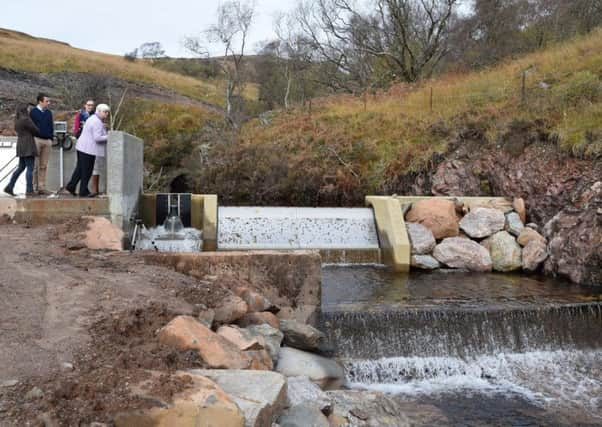Farm-based hydro plants face '˜ruinous' rates rises
This article contains affiliate links. We may earn a small commission on items purchased through this article, but that does not affect our editorial judgement.


And the fears expressed by Fort William farmer John Macdonald to First Minister Nicola Sturgeon earlier in the week at the NFU Scotland AGM were yesterday echoed around the country.
Macdonald told the First Minister that many of those who had installed such systems – often at vast expense – had done so in the belief that they were contributing to a low-carbon economy while also developing a new income stream for their businesses.
Advertisement
Hide AdAdvertisement
Hide Ad“When some of these hydro schemes were installed it looked like we would be working towards a 13-year payback – but now we’re faced with the situation that having put the system in, we’re suddenly faced with a large rateable value,” he said.
He said that these rates were “pretty hefty” and often represented a considerable additional cost over and above what had originally been envisaged.
A similar line was taken yesterday by Martin Foster, chairman of Alba Energy, who said it appeared that hydro power had been singled out for “special punishment” – with increases in valuations of as much as 650 per cent “threatening to end small hydro schemes on this side of the Border”.
He said he didn’t want special treatment for the sector but asked why the Scottish Government had facilitated a rates regime which he claimed would “cripple the independent hydro industry” despite earlier claims of support – while the big energy companies remained unaffected.
Alex Linklater, director of Buckny Hydro, a 500 kilowatt site in Perthshire, said he had seen its draft valuation rise from £32,000 to £93,000, or 29 per cent of its overall turnover.
“And the worst-hit schemes have seen increases up to seven times their original value, with rateable valuations of up to 50 per cent of turnover” he added.
Speaking at the NFUS meeting, Sturgeon said that while the rates were set independently, she was aware that the issue had been of concern in some sectors.
Advertisement
Hide AdAdvertisement
Hide AdShe said that while a number of factors contributed to the profitability of such enterprises, she wanted to avoid any unintended consequences in the system and stated that the Barclay review of the rating methodology would help highlight any anomalies.
Also speaking at the union conference, rural economy cabinet secretary Fergus Ewing gave an unequivocal undertaking that there would be no rating system introduced for farms.
He said this decision had been taken in the post-war years in recognition of the fact that it was a fundamental requirement that food was produced for the country – and referring to Brexit he added: “And if there was ever a time when we should remember that fundamental imperative it is now with the new uncertainties which have been added to the equation.”
